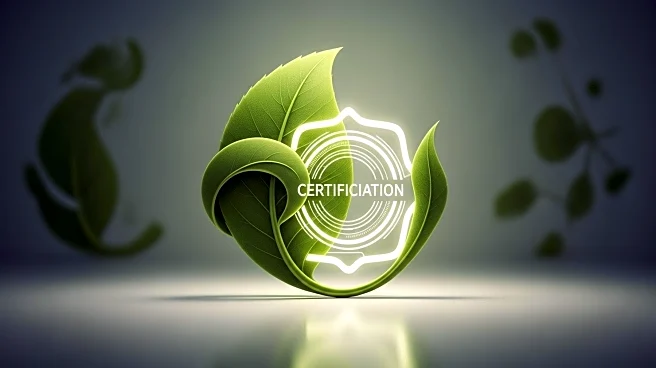What is the story about?
What's Happening?
Regenified, a certification program launched in 2022, is under scrutiny for its approach to verifying regenerative agriculture practices. The program, which promotes itself as a leader in regenerative certification, has been criticized for not aligning with international best practices. Unlike other certification systems that involve transparent and participatory processes, Regenified's standards are developed internally and are not open to public comment. This lack of transparency and stakeholder involvement raises questions about the credibility of its certification. Additionally, Regenified's structure as a for-profit LLC, with ties to the consulting firm Understanding Ag and the nonprofit Soil Health Academy, further complicates its impartiality. The program's verification process, conducted by its own employees, is also seen as a conflict of interest, undermining the trust in its certification claims.
Why It's Important?
The credibility of regenerative agriculture certifications is crucial for maintaining consumer trust in sustainability claims. As more companies adopt regenerative practices, the integrity of the certifications supporting these claims becomes vital. If certifications like Regenified's are perceived as non-credible, it could lead to accusations of greenwashing, where companies falsely market their products as environmentally friendly. This could undermine consumer confidence and potentially harm the broader movement towards sustainable agriculture. Food companies must carefully choose credible certification programs to ensure their claims are backed by transparent and independent verification processes, thereby maintaining trust and supporting genuine sustainability efforts.
What's Next?
The ongoing scrutiny of Regenified's certification model may prompt further investigations and discussions within the industry. Stakeholders, including food companies and consumer advocacy groups, may push for more rigorous standards and independent verification processes to ensure the credibility of regenerative agriculture claims. The forthcoming white paper from Consumer Reports, analyzing Regenified and other labels, could influence industry practices and consumer perceptions. Companies may need to reassess their partnerships with certification programs to align with best practices and avoid potential reputational risks associated with non-credible certifications.
Beyond the Headlines
The issues surrounding Regenified's certification model highlight broader challenges in the certification industry, particularly the balance between commercial interests and the need for impartiality. The case underscores the importance of developing certification systems that are not only transparent but also free from conflicts of interest. This situation may lead to increased calls for regulatory oversight and the establishment of industry-wide standards to ensure the integrity of sustainability claims. The outcome of this scrutiny could have long-term implications for how certification programs are structured and perceived by both companies and consumers.















